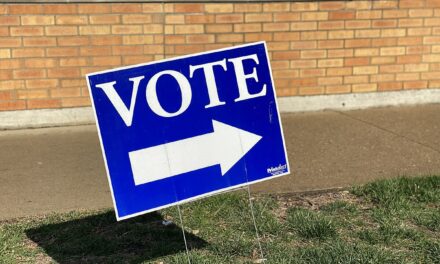We support our Publishers and Content Creators. You can view this story on their website by CLICKING HERE.
While there is a timeless component to beauty, such as in classic art or Venetian sculptures, there is also a dispositional component. This accounts for variance in individual tastes and helps decode the reasons for the cultural “it” girl or man of any given moment. It explains why someone like Kim Kardashian could have only had her distinct moment in the early 2010s after the social obsession with thinness reached its point of cultural saturation.
Though he is tall with piercing blue eyes, J.D. Vance isn’t particularly hot. His facial hair conceals a soft jawline, which hides the fluctuation of a few extra pounds here and there. Yet the responses to him from the young female audience after the Oct. 1 vice presidential debate were positively gushing.
This reaction seizes on a moment in which white men have been particularly villainized by the left — something the Democrat Party is notably struggling with as it’s made various attempts at outreach to capture this exact demographic. It’s a signifier that perhaps we’ve hit another moment of cultural saturation.
The debate was an interesting contrast between two different expressions of white masculinity: strong, confident, and composed Vance juxtaposed with Walz, who referred to himself as just an “old guy” and a “knucklehead” and is fond of his self-portrait as a modest, small-town teacher. The latter characterization rings hollow among the Democrats’ coveted demographic of young white male voters.
In this particular moment, when economic uncertainty looms large and nuclear war has been discussed as a real possibility for the first time in decades, it’s only natural that unapologetic strength holds more appeal than self-deprecation, the former of which Vance demonstrated in spades. Young women have been an especially elusive cohort for Republicans, but in this time of historical and social insecurity, a conventional expression of masculinity seems to be just what we desire. We are no longer reacting in the context of social abundance where frivolous identitarian issues are at the forefront of our discourse. Rather, we are consumed by material concerns about food affordability, the migrant crisis, youth employment, and a future for the nation.
At the debate, Vance demonstrated verbal dexterity and calm steadfastness. This helped him navigate the CBS moderators, especially during one particularly notable and inappropriate interjection involving a bogus “fact check.” Vance reminded the moderators that “fact checks” violated the agreed-upon rules of the debate and then corrected them in their Democrat-inspired interpretation of the legal status of the Haitian migrants currently occupying Springfield, Ohio. Vance’s rebuttal was not excitable but firm, eventually triggering the moderators to cut his microphone. It is precisely this unwavering demonstration of moral and factual dominance that satisfies voters’ thirst after the last four years of governance by a regime with a senescent, often unintelligible, figurehead and unclear messaging.
This exchange also mirrored an all-too-common relational dynamic between men and women. Women subconsciously assess the strength of their male partners by constructing boundary tests, not only to feel the permissible edges of what behaviors a man will tolerate before asserting a boundary but to assess how he does it. Vance not only was quick to assert this boundary but demonstrated a rare balance between dominance and politeness. Women witnessing this exchange internalized that Vance is capable of leadership, and if this were a one-to-one relational test, he would pass.
While there was some predictable outcry about “mansplaining,” the word felt more like an anachronism, a tired and lazy woke phrase that belonged in the Obama years. Instead, more women seemed to reveal their appreciation for a man capable of intellectually unburdening us in a way that lets us relax into roles feminism made us forget we enjoyed.
Vance, whom leftist media ineffectively portrayed just weeks ago as “creepy” and “weird,” was surprisingly humane in his treatment of Walz, despite clearly being more skilled on the debate stage. He nodded sympathetically at the appropriate times and was not afraid to agree with his opponent, which worked well as a rhetorical tactic to establish a spirit of political cooperativeness and likeability.
What women are cognitively reducing to Vance being hot is his ability to be not only strong and decisive but also benevolent and reasonable. He synthesizes all the traits in an ideal expression of masculinity: the political equivalent of the firefighter who rescues the puppy from a burning building. It jams all the right buttons for female neuron activation.
The vice presidential candidate’s notoriously troubled upbringing in working-class Appalachia, well documented in his memoir, Hillbilly Elegy, has conferred upon him an internal fortitude uncommonly seen in politics and a remarkable ability to integrate his Yale Law background with his humane understanding of the problems facing real people.
In many ways, this makes him a perfect running mate for fellow establishment outsider Donald Trump — and easy on the eyes to boot.

 Conservative
Conservative  Search
Search Trending
Trending Current News
Current News 





